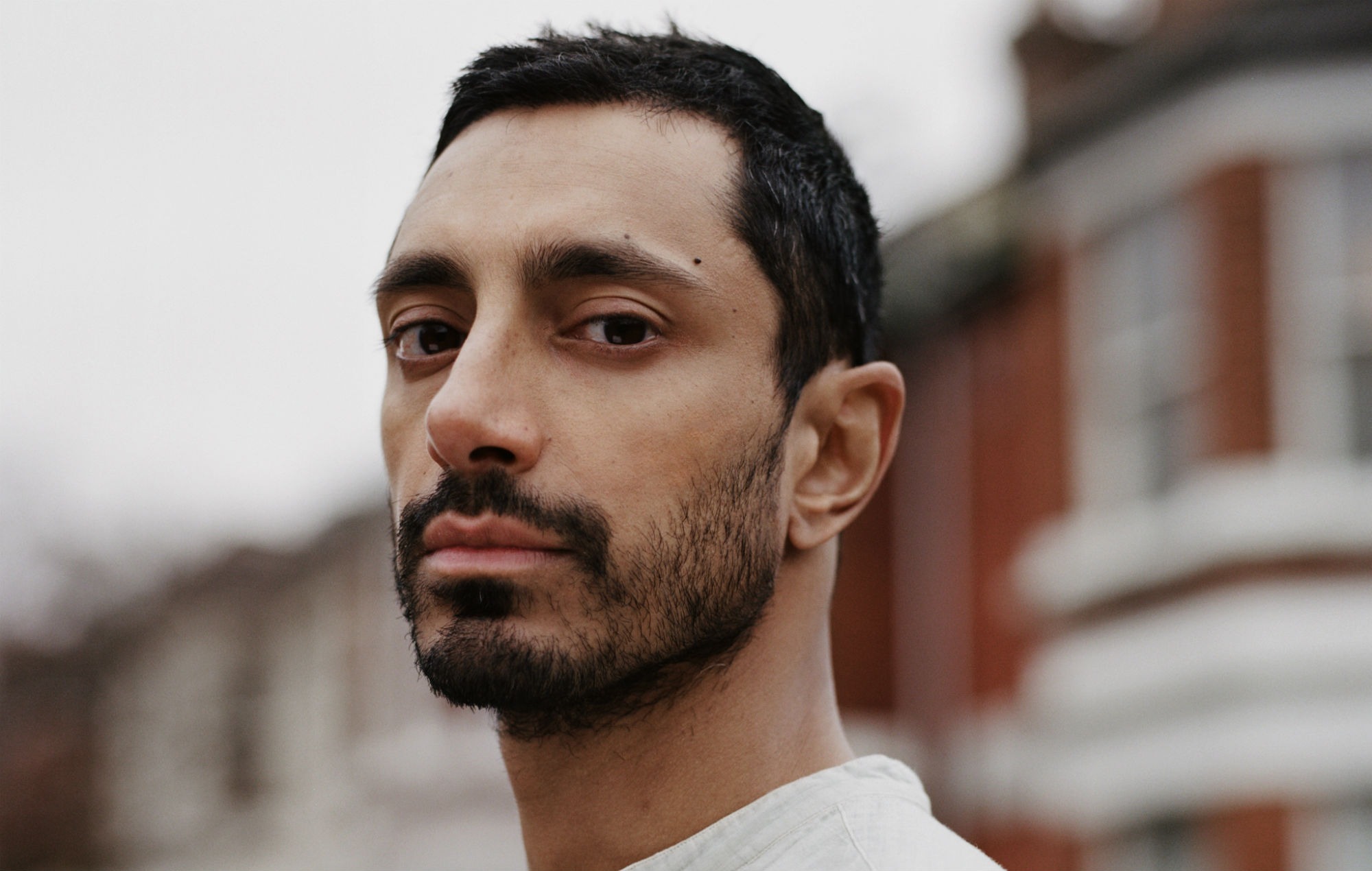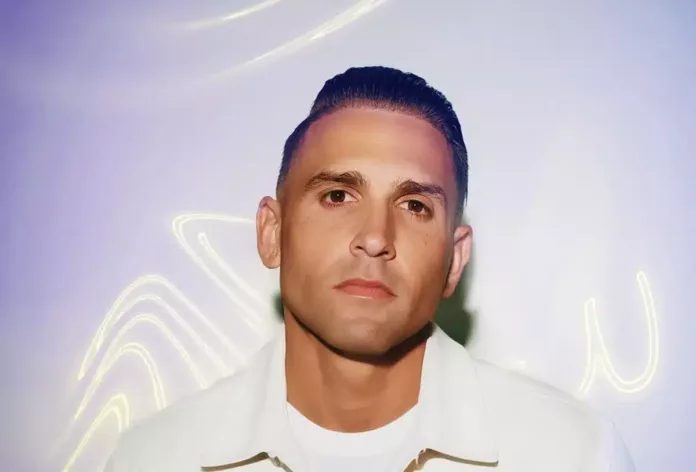
Riz Ahmed on being an actor, activist and rapper: “Representation stretches culture – it might even heal people”
“I personally feel that if someone gives me the microphone or a pen and pad and says, ‘Speak your truth now’, I need to engage with my brownness, that external definition of brownness that is being put on me,” actor, musician and activist Riz Ahmed says over the phone from his London home.
Ahmed was born in Wembley, north-west London, to a family who had moved to the U.K in the 1970s. Given that he comes from a family who were one of millions migrating from India to Pakistan during the 1947 partition and attended the traditionally elite University of Oxford, where he completed a prestigious degree in Philosophy, Politics and Economics, it’s easy to trace Ahmed’s propensity for seamlessly slipping into multiple characters.
Formerly known as Riz MC, Ahmed has long been a rapper and spoken-word artist. His 2006 satirical single ‘Post 9/11 Blues’ shot him to fame while his 2012 debut ‘Microscope’ and 2016 release ‘Englistan’ became his best-known works before he joined forces with American rapper Heems, formerly of Das Racist, and London-based producer Redinho. The trio formed Swet Shop Boys, a critically lauded group who merged a melting pot of cultures to create a sound that represents the Brown diaspora in a way few could rival.
Despite these accomplishments, Riz is still primarily known as an actor. He’s graced the cover of Time magazine and starred in blockbuster movies such as Venom and Star Wars: Rogue One. He was heralded for his turn as a surfer dude on Lena Dunha’s millennials sutcome Girls, and his role as Nasir on HBO’s The Night Of won him an Emmy (Ahmed was the first Muslim man and South Asian person to win the award).
He’s speaking at a time when the entire world is either staying indoors or moving towards a full societal lockdown in the wake of the ongoing Covid-19 pandemic. And in the midst of it all, Ahmed recently released his acclaimed second studio album, ‘The Long Goodbye’, the first under his real name.
“I think Brexit and Trump around 2016 is what kind of shifted me towards wanting to be my unapologetic self,” Ahmed says of his latest album. This latest record is essentially a break-up — but with your country. The album’s roots stem from the anti-immigrant rhetoric the 2016 Brexit campaign ran on; an idea that has steadily gained momentum, culminating in the eventual departure of the United Kingdom from the EU and a rise in race-based crimes, all of which seems to have affected Riz deeply.
“From my point of view,” Ahmed says, “it’s kind of going through the stages of grief. You’ve got that shock, you’ve got denial, then bargaining [and] rage, depression, acceptance and then rebuilding.” This arc is interwoven throughout the album, as Ahmed recounts the anxiety induced by the feeling that Britain, the place he’s called home for 37 years, is breaking up with him.
The record references the work of poet and philosopher Muhammad Iqbal and writer Saadat Hasan Manto and features spoken-word interludes modern-day celebrities such as comedians Mindy Kaling and Asim Chaudhry, actor and activist Yara Shahid and TV presenter Hasan Minaj. The album is well-executed – both viscerally emotional and political, it’s a thought-provoking listen that’s also a frenetic and frenzied project instilled with fun.
The album is accompanied by a short film directed by friend and collaborator Aneil Karia. Running at 12 minutes, the film depicts a British South Asian family getting ready for a wedding, it seems, before being violently interrupted by a right-wing balaclava-clad group. The turn of events and eventual ending leave viewers with questions to turn over for days afterwards.
The project marks the growth of an individual whose multi-hyphenate career in the industry spans nearly two decades. Yet he’s only now feeling particularly proud of his musical output. “I feel like I’m in a really good place where I’m at creatively,” Ahmed admits. “I’m really proud of this album and proud of the film we did around it. I kind of feel like I’m making my best work now.”

Ahmed’s life as a rapper began back before his student days when he used to hop on the mic for pirate radio stations.
“I stepped away from doing pirate stations and MC’ing in London when I went to university,” he explains. His down-the-rabbit-hole early projects, Hit and Run and Confidential Collective, became spaces for Ahmed to continue exploring and experimenting with his sound. “[Hit and Run and Confidential Collective] were jazz groups where they just allowed me to keep practising and constantly performing,” he says. “So I wasn’t just putting my music on hold indefinitely. It was a template for what I would continue to do in other ways in my life, which is: if you don’t find a space somewhere, you have to make it.”
Apart from these groups, Ahmed’s influences ranged from Tupac to grime to drum ‘n’ bass to garage to UK Apache. This hodgepodge of influences was critical in helping him to form a view of his own identity in these spaces. “There are all kinds of different influences which comes from growing up in London,” he says. “In terms of what mongrel culture represents, you’re a mixed-up person. It’s like, ‘We’re going to create a mixed-up culture for you to sonically inhabit, which speaks to different parts of you.’ It felt like someone’s made a home for you that you’ve never stepped in before. I think that’s the powerful thing about music that speaks to you on multiple levels: it makes you feel safe.”
“mongrel culture represents that you’re a mixed-up person”
Ahmed alludes to this definition of ‘mongrel culture’ throughout our interview. It’s also what makes the sonic landscape he creates so unique. Ahmed’s sound is very much his own, a combination of layered, dense production and South Asian influences. This is partly drawn from Qawwali music from Pakistan. “I’ve been interested in Qawwali music [lately],” he explains, “because it seemed like what I’m trying to do is intertwining different strands of DNA helix, you know? Sound system culture that’s come from the Caribbean [with] London grime. The other strand of it is Qawwali, in a way. It’s storytelling through spoken word, [but] also instrumentally and sonically.”
The use of Qawwali – and South Asian instrumentation (synth sitars, tablas, bhangra drums) – gives ‘The Long Goodbye’ texture and nuance, ensuring it’s not just a state-of-the-nation rant. “Yes, part of heartbreak is anxiety and rage,” Ahmed points out, “but part it is also love,” he states. “It was something I was mindful of .”
Ahmed is used to making multi-faceted projects by now. Swet Shop Boys’ 2016 debut album ‘Cashmere’ instantly made waves across the world upon its release. On the album, Heems and Ahmed are relentless in their narration of the brown experience in a post 9/11 world. They unapologetically provide a counter-narrative to the demonisation and portrayal of brown people for over a decade while appealing to brown youth by outlining ambitions and frustrations in a way that doesn’t come across as pontificating. “I’m proud of what we did with Swet Shop Boys, to be honest,” Ahmed admits. “I don’t think we’ve ever done something like that before.”
Despite that success, though, the band abruptly disbanded in 2017, less than a year after ‘Cashmere’ was released. “We were in a really exciting trajectory, but you know, life happens,” Ahmed says. “There’s a lot of love and respect. I think we’re just at different stages in our lives. Heems had already toured the world in a rap group [with Das Racist] and I think he was at a stage when he wanted a different rhythm to his life. I don’t think he was hell-bent on still being a touring musician. I can understand if he wanted to try different things.”
Heems ended up working at Spotify for a while, platforming South Asian artists through curated playlists. And with Ahmed, as he puts it, “running around, acting in movies”, the Swet Shop Boys project seemed destined to be put on hold.
“It’s hard enough to make an album in the same place,” Ahmed says. “Put people on different sides of the world with different priorities and work schedules, and it becomes untenable. Sometimes the best thing you can do for the people you love and respect is to respect the differences as well. We were trying to make the jigsaw puzzle of scheduling and priorities work before we realised maybe there’s a simpler way to do this that can not be heartbreaking as well.”
Though Swet Shop Boys’ future is uncertain, the group’s influence on Ahmed’s musical output is apparent. “I have no doubt in my mind,” Ahmed admits, “that I wouldn’t have made this album if it weren’t for Swet Shop Boys. And it wouldn’t have sounded as good as it does if I hadn’t worked with Heems, because I think we opened each other up to a different way of working.”
Heems’ propensity to work in a much looser, intuitive way complemented Ahmed’s more structured methods. “When we were writing the first track,” Ahmed says, “I was writing, rewriting and rewriting and rewriting the hook. He was going in with a freestyle. When we did the last track, I was in there, straight away, freestyling and he went in and wrote and rewrote and rewrote.”

‘The Long Goodbye’ sees Ahmed flitting between accents, people, groups, attracting creativity like bees to a hive. It’s what has made him such a successful actor, rapper and activist. Riz’s work since 2016 – be it Swet Shop Boys or ‘The Long Goodbye’ – has always ignited conversations. He’s continued this with his ‘Long Lockdown Festival’, held last week, whereby his movies and music videos are livestreamed and audiences invited to ask Riz and his fellow commentators questions.
Ahmed’s work is about establishing a sense of pride in your community – one that’s been vilified across Western media for so long, Naturally, it has made him a pillar in the South Asian diaspora community – though he dismisses that idea almost instantly, rejecting that idea that he’s any kind of ‘role model’. In fact, it spurs him to work even harder, so as to outrun the tag.
“It’s double-edged,” he explains. “It’s a gift and a curse. It’s a gift to know that anything and everything you do might carry a wider significance than just the work itself. It might create ripples in representation, it might stretch culture a little bit, it might heal people a little bit and might allow them to be seen. And that’s a gift. Your work is animated with a sense of vision, a sense of mission to stretch culture.”
But there is a downside be being a multi-hyphenate artist, he explains as our time together draws to a close: “It can also leave you feeling very paralysed. Sometimes the work can be the enemy. The work has to come from a personal place. It has to be, for you, because on some personal emotional level you need to get something off the chest. If you start making work to try to represent culture, it falls flat. And when people aren’t satisfied by that – and they never all are – you’ve got nothing left to stand by. The GPS has to come from inside.”



